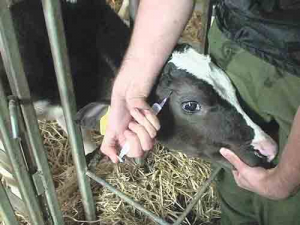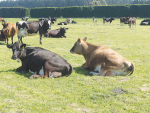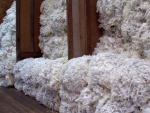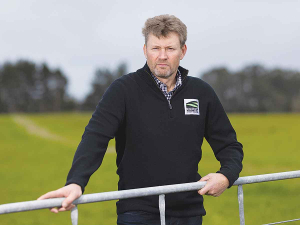Farmers will be able to administer a local anaesthetic for disbudding or dehorning, if they are trained, when new regulations come into force on October 1, 2019, says NZ Veterinary Association chief veterinary officer Helen Beattie.
Pain relief for those procedures will be mandatory from that date. It is part of a package of new animal welfare regulations, most of which take effect on October 1 this year. However, the industry has been given more time to prepare new disbudding and dehorning regulatory requirements.
Beattie told Dairy News a lot of work has gone into developing guidelines for not just the effective placement of anaesthetic but also to provide the right training to farmers to make sure when they are using a local that it will do the right job.
“The intention is for a local to be authorised on farms; there are a number of different mechanisms that can be used. If a farmer has a veterinarian, and a relationship with that vet, then the farmer may already be getting drugs authorised onto their farm through their annual consultation.
“If they have done the training, been shown how to use a local and ticked off all those things we need to teach them — like placing the local effectively and using the tools effectively — then they can have local authorised onto their farm to undertake the disbudding themselves.
“The process of getting local on farms per se is not new; it is already allowed for under legislation, and that’s how farmers already have other drugs onfarm, like antibiotics or anti-inflammatories. So that part of the process is not new; having local for this particular task is new.”
Beattie says they have been working on an overarching guideline for the disbudding dehorning process and also a guideline for training and training assessment documents.
“It is a guideline so that at least the vets out there training people how to do this have a default starting point. They are welcome to take it and use it as they see fit and tweak it accordingly, but we have covered the key points within that document so we know there’s the same song sheet to sing from.”
The training will not involve a formal qualification; it is not a NZQA approved or accredited programme.
“It is a comprehensive document that goes to the structure, the theory of how nerves work and how to place the local and pro-forma contracts you would draw up between the farmer and the vet as well.
“There needs to be a reconciliation process onfarm too, so that we know where the local and all the other drugs are and which animals they have gone to -- an audit trail essentially.
“For arguments sake, you could be disbudding tens of thousands of calves or you could be doing 200 or even 40; there is a very wide variation on what that is going to look like.
“These documents are set up so you can pick and choose; for each individual situation you can draw that contract up appropriately and according to what each case looks like.
“We have provided all of that; it is not a legal requirement per se but it is what we are providing to members to make the job easier and making sure they are ticking off all the right things within their training assessment processes.”
The use of local, however, will “absolutely” be a legal requirement.
“We are providing the support documents for that to make the process as smooth as possible. There is not much point in everybody drawing up their own.
“NZVA and the dairy cattle vets have pulled this together as ‘here’s something you will find useful’. We hope they do because we have spent a lot of time on it to facilitate that process and it sets expectations of what we think should be ticked off -- what farmers need to know; it is not just on how to put the local in.
“It is about safe needle use and where to store and how to be careful with the smoke and health and safety issues.
“More health and safety issues are involved rather than worrying about just where you put the needle in the cow’s head to provide local.
“It is a challenging thing. It is very easy forget when you are a veterinarian dealing with needles and syringes and injecting animals all the time and it comes as second nature to use. I totally understand it will be challenging for some farmers.
“If you are a farmer who doesn’t feel competent enough or you don’t want to or there is a disbudding service in your local area, it may be that you engage another provider to come and do disbudding for you. There are a number of options around how to make sure you can have your animals disbudded inside the law, whether or not it is you or a disbudding provider that comes to do that.
“Some people are very squeamish about needles and we need to make sure we have the facilities to help those people.
“Some people are already doing this. Because we can already authorise drugs onto farm it is possible now to have access to local and to be using local already to do disbudding.
“From October 1 next year this becomes the law but this doesn’t preclude people from doing it now.”











